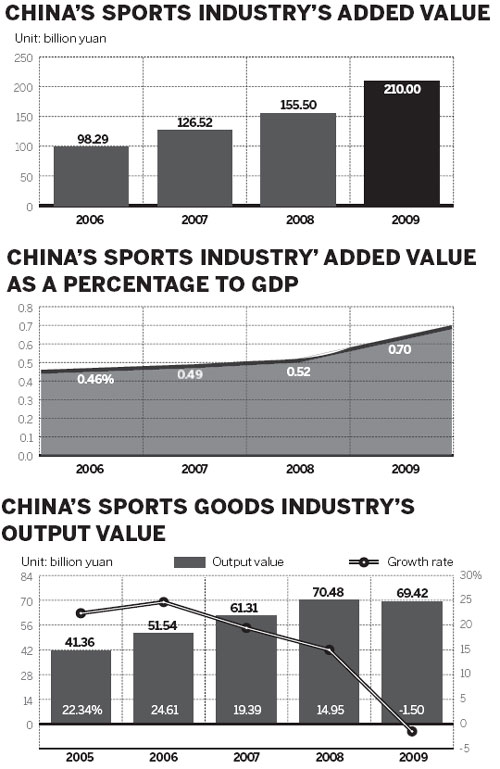
Consolidation likely
The pressures now being felt in the private-sector fitness industry, suggest industry watchers, mean that rapid consolidation is likely, and that operators will be more willing to offer tailored products, and be looking to diversify into other services as well as straight fitness.
Liu Guoyong, vice-director with the public sports department under the General Administration of Sport of China, said that while no strict industry regulation exists, there are always going to be small-scale centers willing to set up businesses with a few treadmills and part-time coaches.
"The industry threshold is still low, but I do think that consolidation in the industry is likely to be a trend in the coming years, as consumers become more selective when choosing fitness facilities.
"The professional resources and expertise of the larger companies will also help them attract and retain clientele, but there will be some mergers and acquisitions too in the short term, " Liu said.
He also noted that the government is looking at ways of raising and maintaining industry standards, and there are plans to introduce rules and regulations.
As commercial property rentals continue to rise, Wu Shengping, general manager of Hosa Fitness China, said his company is now planning to launch community gyms, in cooperation with various residential organizations.
The government also now requires new residential communities in key cities to have their own fitness facilities, and such a cooperation between public and private sectors could help companies such as Hosa reduce costs.
Wu said Hosa plans to have more than 300 outlets in China by the end of this year, and a large part of them will be in residential areas.
On the other hand, Forward Intelligence's Luo suggested some players are still turning their attention to the high-end market, providing services aimed squarely at attracting wealthy, and corporate clients.
Besides basic gym facilities, other services might include scientific body examination, tailored lifestyle consulting and family health and lifestyle management.But again, these kinds of top-end club are likely to be opened in more residential, suburban areas to cater to high-income consumers, as well as costing less to rent.
Another type of business model being closely looked at by some operators is to develop facilities based in offices and factories, aimed at helping specific corporate clients offer their employers something in terms of health and welfare.
Tao Yingjian said that's certainly something she would welcome, as she searches for her next gym.
"I'd love my company to offer me something like this," she said, "I could work out in the afternoon break, or straight from work.
"But in the meantime, I'll keep looking.
"I know there's plenty of choice out there, and the prices are dropping, so I'm sure I'll find somewhere new."
liujie@chinadaily.com.cn



 Washington to remain focused on Asia-Pacific
Washington to remain focused on Asia-Pacific RQFII target blue chips amid bear market
RQFII target blue chips amid bear market Australian recall for top two exporters
Australian recall for top two exporters China fears new car restrictions
China fears new car restrictions